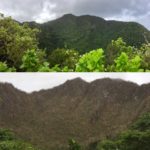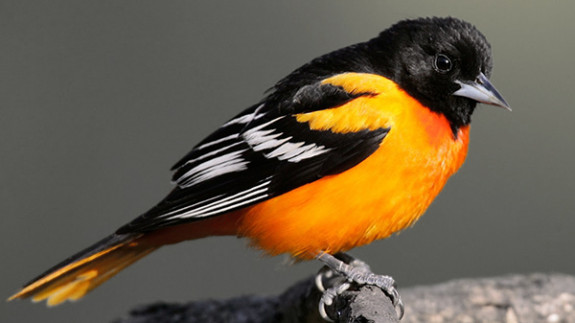Our wild birds need help.
Birds that were feasting at our backyard feeders just weeks ago have migrated to seasonal habitats where their natural food sources have been decimated.
As 150 species of migratory wild birds join the 500 native species in Caribbean habitats devastated by hurricanes, all are struggling to find enough food. The situation is dire. If we don’t help them now, many could perish.
Together, we can feed them until natural food sources recover.
Owners of stores like The Backyard Naturalist, birding professionals and many birding companies are uniting to donate TONS of specially-blended bird seed (Special thanks to our own seed supplier, Lizzie Mae!) and thousands of hummingbird feeders with nectar concentrates. Our first shipments are now arriving to our partner there, BirdsCaribbean. Volunteers are taking delivery, establishing feeders and will maintain them.
Your donation helps maintain ongoing food supply efforts.
Donate to BirdsCaribbean Hurricane Relief Fund to keep the seed deliveries going.
We need your help. Until natural food sources replenish, ongoing shipments of food to affected habitats will be critical for birds' survival. Donations are essential to help cover shipping costs of donated feeders, seed and nectar.
This is a massive joint mission that will take months or longer. Please join us to help our wild birds survive this catastrophe.
Our Backyard Birds Now in the Caribbean
Ruby-throated Hummingbirds
Baltimore Orioles
Gray Catbirds
Rose-breasted Grosbeaks
Indigo Buntings
Tree Swallows
Barn Swallows
and more.
Warblers:
American Redstart
Ovenbird
Black-throated Blue
Chestnut-sided
Yellow and Common Yellow-throat
and more.
Regional Birds Include:
Ospreys
Belted Kingfishers
Killdeer
and more.
The Caribbean is a unique biodiversity hotspot!
172 of this region’s 500 native species are found nowhere else on Earth. Some species only exist on one island!
Along with hosting 150 species of migratory birds each winter, the Caribbean islands are an essential stop-over for other birds who continue to their South American seasonal habitats. These amazing tiny travelers need to rest and bulk up before they continue their astounding and perilous journey.
Imagine running at top speed for a thousand miles and arriving to find every restaurant and hotel closed!
Storms disrupted ecosystems.
With habitats stripped of vegetation, finding food— and protective shelter from predators— will be an ongoing daily life-or-death struggle for many birds.
Some of the challenges:
- Loss of food sources is even worse for nectarivores, frugivores and seed eating birds than it is for insectivores and raptors.
- Lack of trees for cavity nesting species of birds curtails or delays breeding.
- Species forced to relocate become confined to small habitat fragments on islands.
- Canopy-dwellers become more vulnerable when they shift to ground level.
- Post-hurricane wandering may bring some birds into conflict with humans.
- Loss of large trees eliminates nesting or roosting sites for waterbirds, like herons and egrets.
- Devastated vegetation at higher elevations takes longer to recover, so mountain species shift to lowlands, adding to the competition for food.
- Species with small (< 500) population size are challenged to EXIST. 56 Caribbean species are endangered, with 17 currently listed as Critically Endangered or Possibly Extinct.
Reference: Joseph Wunderle ‘Hurricanes and the Fate of Caribbean Birds—What do we Know, What do we Need to Know, Who is Vulnerable, How can we Prepare, What can we do, and What are the Management Options?’, The Journal of Caribbean Ornithology.
News of post-hurricane relief and recovery

From BirdsCarribean – Before and after Irma: Destruction of habitat on The Quill, mountain on St. Eustatius that’s home to the Quail Dove (Photo by STENAPA)
The region’s biological importance cannot be overstated. It’s a very special place and the hurricanes have left much of it in crisis. Conservation measures to restore and maintain wild bird habitats in the Caribbean region are now, and will continue to be, critical during a long recovery.
Reports on survival of individual species are mixed and incomplete. In-depth surveys and further assessment of habitats are needed before we know the full effect of the 2017 hurricane season on bird populations.
Meanwhile, it’s not all bad news.
The Good News
- Nature is resilient! A recent BirdsCaribbean expedition to conduct a birding survey in Barbuda, an island that may have suffered the absolute worst of the storms, report signs that Nature’s recovery has begun.
- Human conservation efforts, delayed by Hurricane Irma, are once more underway. One example is Environmental Protection in the Caribbean (EPIC)‘s conservation program in Sint Maarten. EPIC is recruiting and training citizen-science volunteers who are now planting native species and will continue to monitor growth.
- Donated shipments of feeders, seed and hummingbird nectar are now reaching feeding stations! One of BirdsCarribean’s partners reported needing 10 pounds of sugar to feed Hummingbirds at his feeder during a two week span. (This is incredible! Note: 4oz sugar mixed with 12oz water makes enough nectar to sustain an estimated 80 birds for one day.)
- Mangroves are being replanted. Acting as a natural ‘sponge’, mangroves protect coastal communities from storm surges and provide shelter for wildlife. Replacing and protecting this natural buffer is a priority and is something that we can do.
Our global ‘backyard’
The inter-connection of global ‘backyards’ has never been illustrated more clearly.
Their disaster is our disaster. We love and protect many of the very same birds by providing food water and shelter for them in our local network of backyard habitats.
Ultimately, our combined efforts to help feed them in their Winter habitat there will determine how many of them survive to return and nest here in the Spring.
We can do this. Humbled after witnessing the full fury of Nature, humans are coming together, to learn and take action. That is the best possible news.
More about BirdsCaribbean
As the largest conservation organization in the Caribbean, BirdsCaribbean has activated an extended community and network of affiliated groups—with over 1200 members and more than 100,000 local volunteers—all dedicated to boots-on-the-ground conservation of wild birds and their habitats.
BirdsCaribbean are not only feeding hungry birds, but are also supporting their conservation partners by replacing much-needed equipment and supplies lost in storms. Many groups are starting over with less than nothing. Not only are team members struggling with basic survival requirements, they do not have the gear needed to fully assess hurricane impact on bird populations, survey damaged habitats, clean up and start restoration and replanting.
Thank you!
The Backyard Naturalist and Staff sincerely thank our partners and all the volunteers committed to Hurricane Relief. We are also grateful to our customers and friends for their donations to help keep this mission going as long as needed. Together, we can do this! Please spread the word.






